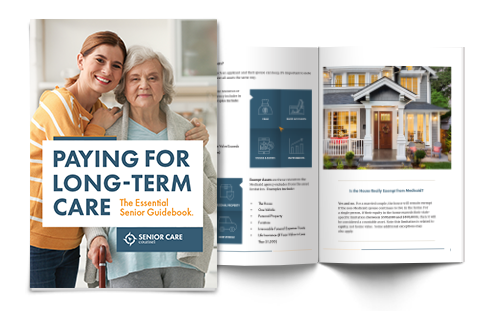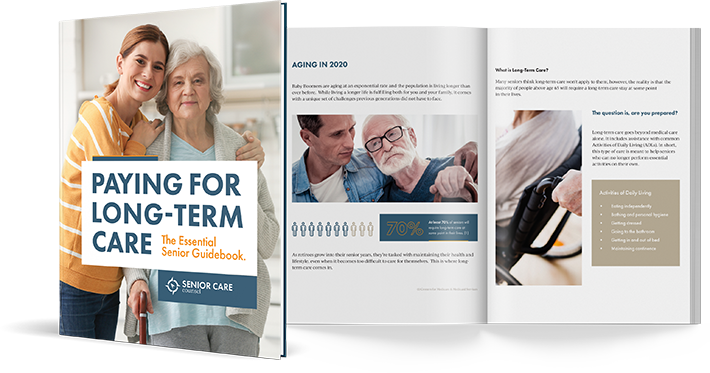How to Save on Nursing Home Costs

Many families are caught off guard by nursing home costs. When the need arises—whether due to aging, illness, or an unexpected health crisis—the price tag can feel overwhelming, leaving individuals wondering how they’ll afford long-term care without draining their life savings.
The good news is that there are ways to manage these costs and protect your assets. With the right planning, you can secure financial stability while ensuring access to quality care, giving you and your loved ones peace of mind for the future..
Understanding Nursing Home Costs
Nursing home care is one of the most significant financial burdens of aging, with costs continuing to rise due to inflation, staffing shortages, and increasing demand for long-term care services. According to CareScout’s Cost of Care Survey, the average annual cost of a semi-private room in a nursing home now exceeds $110,000, an expense that can deplete savings rapidly.
While Medicare provides limited coverage, it only applies to short-term stays following hospitalization for rehabilitation purposes—typically up to 100 days under specific conditions. It does not cover long-term custodial care, such as assistance with daily activities like bathing, dressing, and eating.
For those who require extended care, Medicaid can offer a lifeline by covering long-term nursing home expenses. But qualifying is not simple. Medicaid has strict income and asset limits, requiring individuals to meet specific financial eligibility criteria.
Read more: How Much Does Medicaid Pay for Long-Term Care?
Why Asset Protection Matters
A common misconception about Medicaid eligibility is that individuals must exhaust all their savings to qualify. While Medicaid does have income and asset limits, there are legal strategies that allow individuals to preserve their wealth while still becoming eligible for benefits. With proper planning, seniors can strategically protect certain assets, leaving their spouses or heirs with more financial security.
How? Early planning is key—the Medicaid program has a five-year lookback period in most states, meaning certain asset transfers within that timeframe could trigger penalties or delays in eligibility. By working with an experienced elder law attorney or financial planner, individuals can take proactive steps to protect their assets outside that five-year window, ensuring they receive the care they need without sacrificing everything they’ve worked for.
The Medicaid Compliant Annuity: A Key Strategy
One of the most effective tools for preserving assets while qualifying for Medicaid is the Medicaid Compliant Annuity (MCA). An MCA allows you to convert countable assets into an income stream, helping you meet Medicaid’s strict asset limits without unnecessarily depleting your savings or jeopardizing your financial security.
The benefits of an MCA are clear: It provides stability and predictability, ensuring you can continue to support yourself or your spouse throughout the Medicaid qualification process.
To be compliant, these annuities must adhere to specific and rigorous requirements. They must be irrevocable, meaning they cannot be altered or terminated prematurely. They must also be non-assignable, preventing their transfer to any third party and ensuring the annuity remains intact as originally designed. Furthermore, these annuities must typically name the state as a beneficiary to the extent of Medicaid benefits provided, allowing the state to recover some costs upon the annuitant’s death under certain conditions.
Read more: An Estate Planning Checklist
Creating an Irrevocable Trust and Other Asset Protection Strategies
Beyond MCAs, there are additional strategies that can help minimize the financial burden of nursing home care, including:
- Setting up an irrevocable trust to shield assets from Medicaid spend-down rules
- Utilizing spousal protections to preserve assets for a healthy spouse
- Prepaying funeral and burial expenses, which are typically exempt assets
- Purchasing exempt assets such as a new vehicle or home improvements
If you’re concerned about nursing home costs, know you have options. It’s never too late to take action and protect what’s left. At Senior Care Counsel, we’re here to help. Tell us about your situation and discover the right solution for you.
[FREE] GET OUR PLANNING GUIDE:
"Paying for Long-Term Care - The Essential Senior Guidebook"This guide takes a deep dive into the landscape of long-term care and how to pay for it without going broke, including the answers to your top questions surrounding Medicaid.
GET MY COPY
